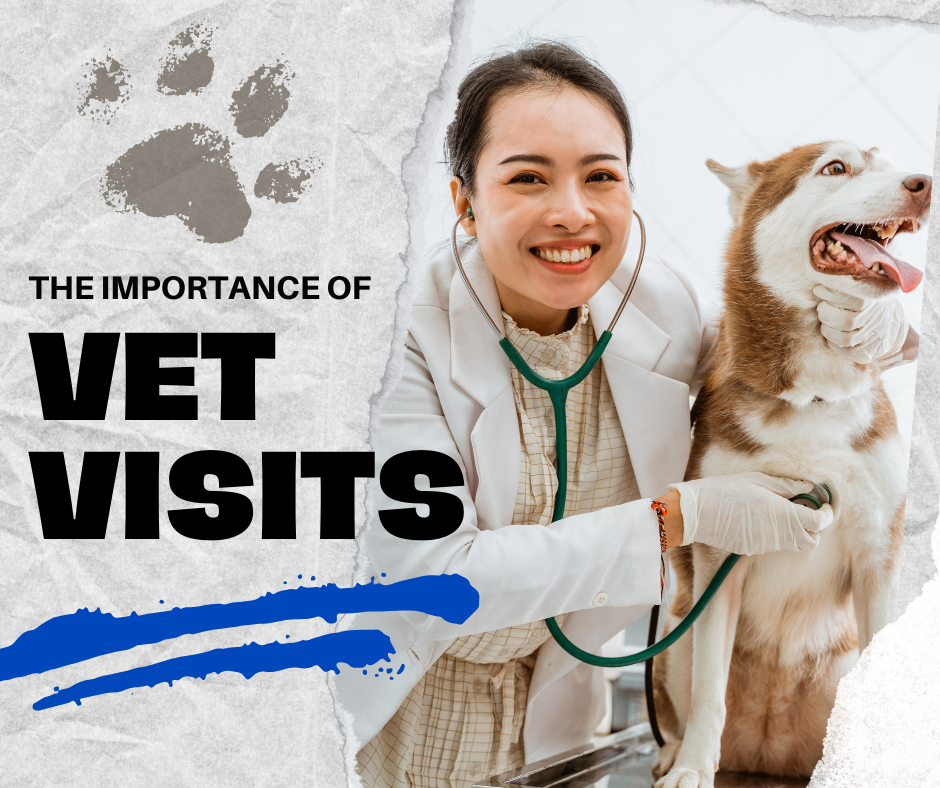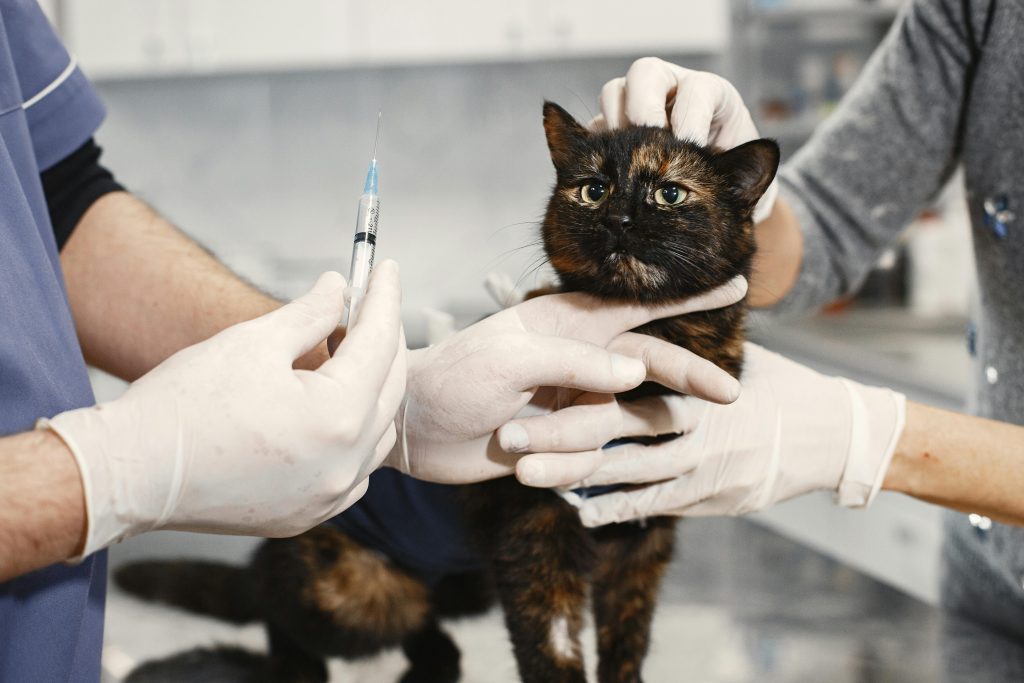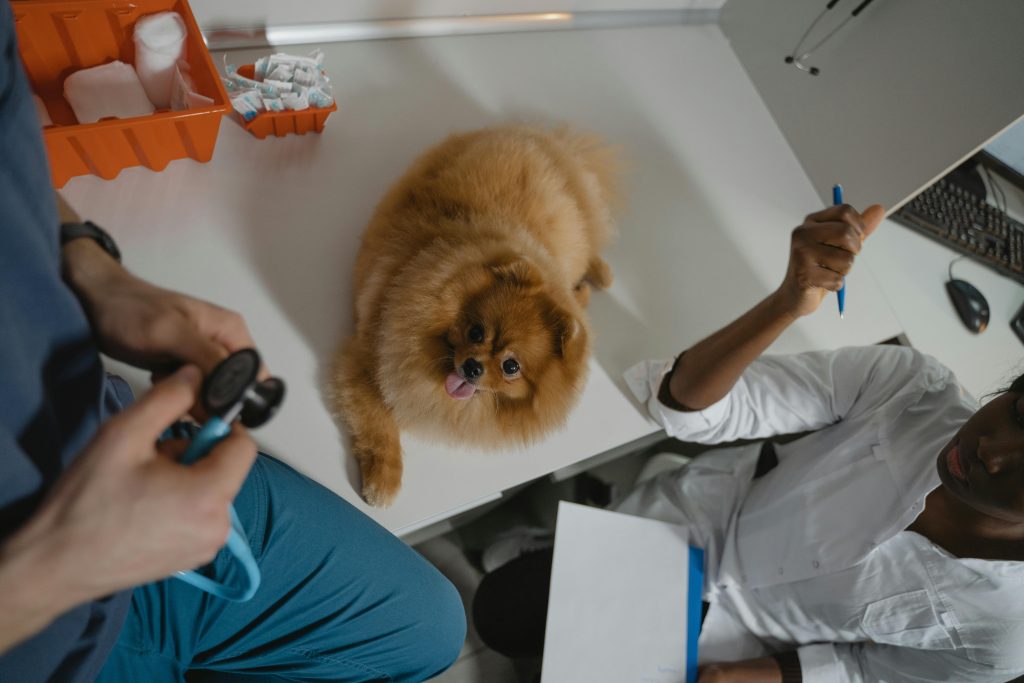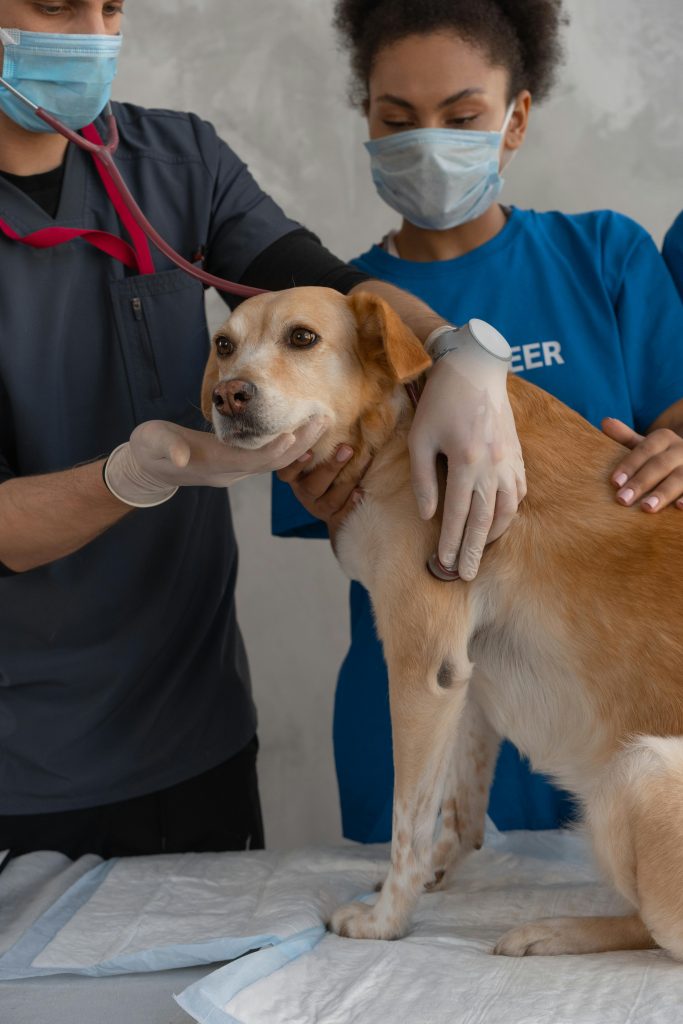
PREVENTION, EARLY DETECTION, AND PEACE OF MIND.
As responsible pet owners, we all want our animals to live happy, healthy lives. One of the most important ways we can ensure this is by regularly taking our pets to the vet. Regular vet visits are essential for catching potential health problems early, keeping your pet’s vaccinations up-to-date, and maintaining overall health. In this article, we will discuss the importance of regular vet check-ups, what to expect during a visit, and how routine care helps keep your pet in optimal health.

WHY REGULAR VET VISITS MATTER
Just like humans, pets benefit from annual check-ups to ensure their health is on track. Pets age much faster than humans, so an annual vet visit for a pet is equivalent to several years of human check-ups. Regular visits allow veterinarians to detect underlying health problems before they become serious, such as dental disease, parasites, obesity, or even cancers that might otherwise go unnoticed.
During these visits, veterinarians also check for signs of illness that may not be immediately apparent, including subtle changes in behaviour, appetite, or energy levels. Early intervention is key in treating these problems and often leads to better outcomes for pets.
Your pet needs to visit the vet at least once a year, but I would suggest senior pets go for bi-annual check-ups.
VACCINATIONS AND PREVENTATIVE CARE
One of the most important reasons for regular vet visits is to keep your pet’s vaccinations up-to-date. Vaccines protect your pet from dangerous diseases, such as rabies, parvovirus, and distemper. Puppies and kittens will have an initial series of vaccinations, and after that, they will need booster shots to maintain their immunity throughout their lives. Failing to stay on top of vaccines could leave your pet vulnerable to infections that are easily preventable. I am cautious about over-vaccinating. Discuss this with your vet and consider a titer test rather than over-vaccinating.
Besides vaccinations, vets also provide other preventive care during regular visits. This includes routine deworming, flea and tick treatments, heartworm prevention, and possible dental cleanings. Preventative measures go a long way in preventing costly medical treatments down the line and improving your pet’s quality of life.
Also, see proactive strategies to cut down on veterinary costs.

Also, see why you should not support breeders.
DENTAL HEALTH
Many pet owners overlook dental care, but it’s just as important as any other aspect of a pet’s health. Poor dental hygiene can lead to gum disease, tooth loss, and even heart disease. Regular vet visits allow your veterinarian to check for early signs of dental problems, perform professional cleanings, and provide advice on how to care for your pet’s teeth at home. Routine dental care is an often underappreciated but vital part of your pet’s overall well-being.
Discuss the risks and benefits of professional cleaning with your vet. Not all breeds respond the same to anesthesia, and some breeds are more prone to dental issues than others.
WEIGHT MANAGEMENT
Obesity is a growing problem among pets and can lead to serious health complications, including arthritis, diabetes, and heart disease. Pets may not always show signs of being overweight, especially if the extra pounds have accumulated gradually. Vet visits can help monitor your pet’s weight and your vet can detect weight gain early. They may recommend dietary changes or exercise routines to help prevent obesity and related health issues. Diet and exercise are not that simple and I prefer to consult experts in those fields for advice. For the record, I am not a fan of kibble diets.
BEHAVIOURAL CHANGES
Sometimes, the first sign that something is wrong with your pet is a change in behaviour. Pets may not always show physical signs of illness, but they might stop eating, become more aggressive, or withdraw socially. These subtle behavioural changes can be signs of stress, anxiety, or illness. A veterinarian can help determine the cause and provide solutions. They can rule out medical conditions and refer you to a behaviourist (there is a difference between behaviourists and traniers) for behavioural issues such as separation anxiety, fear of loud noises, excessive barking, etc. You can also consult with a behavioural vet if you have one in your area.

WHAT TO EXPECT DURING A VET VISIT
When you take your pet to the vet, there are several things you can expect. The veterinarian will perform a thorough physical exam from head to toe, checking your pet’s eyes, ears, teeth, skin, and coat. They will listen to your pet’s heart and lungs, palpate the abdomen, and check for any abnormalities, including lumps and bumps. They may check your pet’s temperature and whether your microchip is in working order.
Blood tests, urinalysis, or fecal exams may also be recommended to check for infections, parasites, or organ function. If your pet is due for vaccinations, these will be administered, and your vet may also recommend preventive treatments such as flea and tick control.
If your pet is due for a dental cleaning, the vet may schedule this for a later time, as it often requires anesthesia. The vet will also provide recommendations on how to keep your pet healthy in between visits.
REMEMBER
- Seek out proactive wellness veterinarians who not only treat problems as they arise but also focus on preventing them, ensuring your pet’s long-term health.
- Do your homework on the vet you choose. Read more about it here.
- Don’t follow random advice on the internet or from strangers.
- Do regular at-home physical exams. Between visits, you can keep a close eye on your pet’s health by conducting an at-home physical exam.
- While your veterinarian may be knowledgeable and skilled in general animal care, it’s important to remember that they are not necessarily specialists in fields, such as rehabilitation, cardiology, oncology, behaviour, nutrition, exercise, exotic pets, etc. If your vet seems unsure or you’re dealing with a more complex case, don’t hesitate to seek advice from a specialist. I recommend using Valley Farm Animal Hospital for cases requiring specialized care.
- You are your pet’s advocate. It’s natural to feel stressed or even intimidated during a vet visit, but you know your pet best. Yes, better than the veterinarian. Speak up if you have concerns, ask questions, and trust your instincts. If you ever feel uncomfortable with how your pet is being treated, it’s okay to leave and seek a second opinion. Your pet is counting on you to stand up for them.
- Here are some tips to make vet visits easier.

If you feel the vet has been unprofessional or negligent, you can open a case at the SAVC. Read more about the process here. The Paw Company recently won a case at the SAVC and we are happy to guide you so that vets can be held accountable.
Regular vet visits are one of the most important steps in ensuring that your pet lives a long, healthy, and happy life. By staying up to date with vaccinations, and preventive care, and addressing potential health problems early, you can help your pet avoid serious issues in the future. Regular check-ups also help strengthen the bond between you and your pet, as your vet becomes a trusted partner in caring for your animal. Don’t wait until your pet is showing signs of illness—schedule that annual check-up and ensure your pet’s continued well-being.
Join us again next week as we explore the pets of our lives!